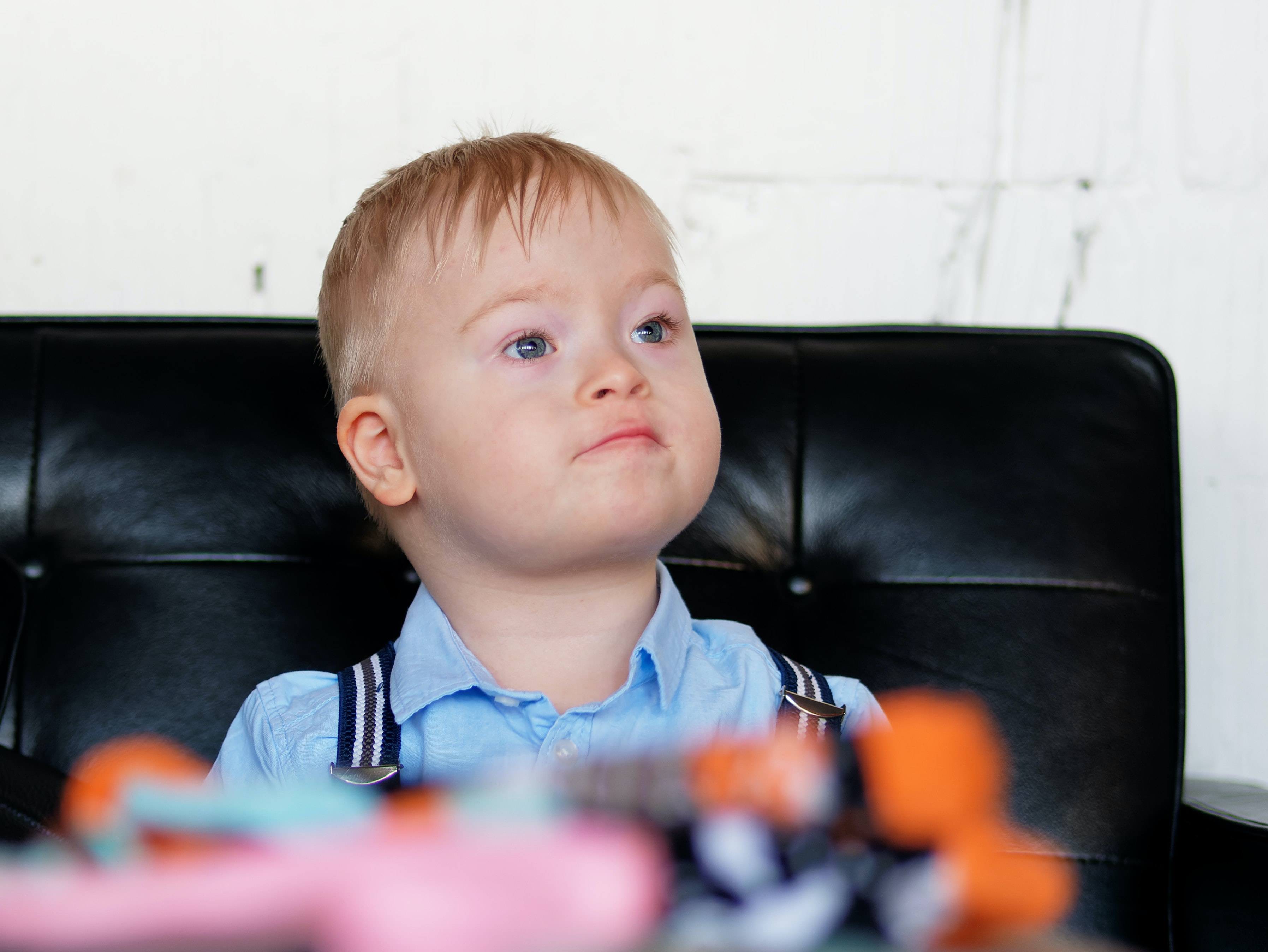Dental care staff found lacking when treating children with Down syndrome
Parents of children with Down's Syndrome feel that dental staff often lack competence in dealing with children that have the genetic condition. It is also felt that the staff often lack knowledge of alternative methods of communication, such as using pictures and signs as forms of communication support. This has been revealed from a survey conducted by researchers at the School of Health and Welfare, Jönköping University (JU).

Boy with Downs syndrome. Photo by Pavol Štugel on Unsplash
Each year, approximately 100 children with Down’s Syndrome are born in Sweden. The syndrome is due to a chromosomal abnormality that often leads to intellectual disability and sometimes medical complications as well. Delayed or limited development of motor skills and language skills is also common. Therefore, a visit to the dentist can be a big challenge for a child with Down’s Syndrome.
In the survey, researchers Malin Stensson and Maria Björk, through contact with parents of children with Down’s Syndrome, have discovered what can facilitate and improve the children's dental visits. The answers could be clearly divided into five categories:
- Need for continuity in dental care
- Need for dental professionals to have knowledge and expertise in meeting and treating children with Down’s syndrome and other disabilities
- Need for dental professionals to use a caring approach towards children with Down’s Syndrome
- Need for the child with Down's Syndrome to be prepared for and involved in their dental visit
- Need for the child with Down’s Syndrome to be given the same rights as a typically developed child.
“The child with Down’s Syndrome needs to understand what is happening, to feel safe and involved in the dental care situation in order for an examination or treatment to be carried out. As well as purely medical or oral health problems, there may be communication problems to consider,” says Malin Stensson.
Based on the survey results, the School of Health and Welfare’s researchers, in collaboration with researchers in the USA and Belgium, have created a new doctoral project. The project will consist of four sub-studies that are expected to provide a deeper understanding of the general dental care young people with Down’s Syndrome receive, as well as orthodontic treatment in particular. The project will also study which factors, at both individual and organizational level, affect the assessment of the child, and which offered and received treatment children get.
“We will also have a reference group of young people with Down’s Syndrome, parents and dental professionals throughout the process who can give us support and input to carry out research that will benefit those concerned. The knowledge and experiences of both parents and young people need to be recognized and valued. We will interview young people, parents and dental staff and there will be clinical examinations and a review of dental records to get a picture of what dental treatment the young people have received,” says Maria Björk.
